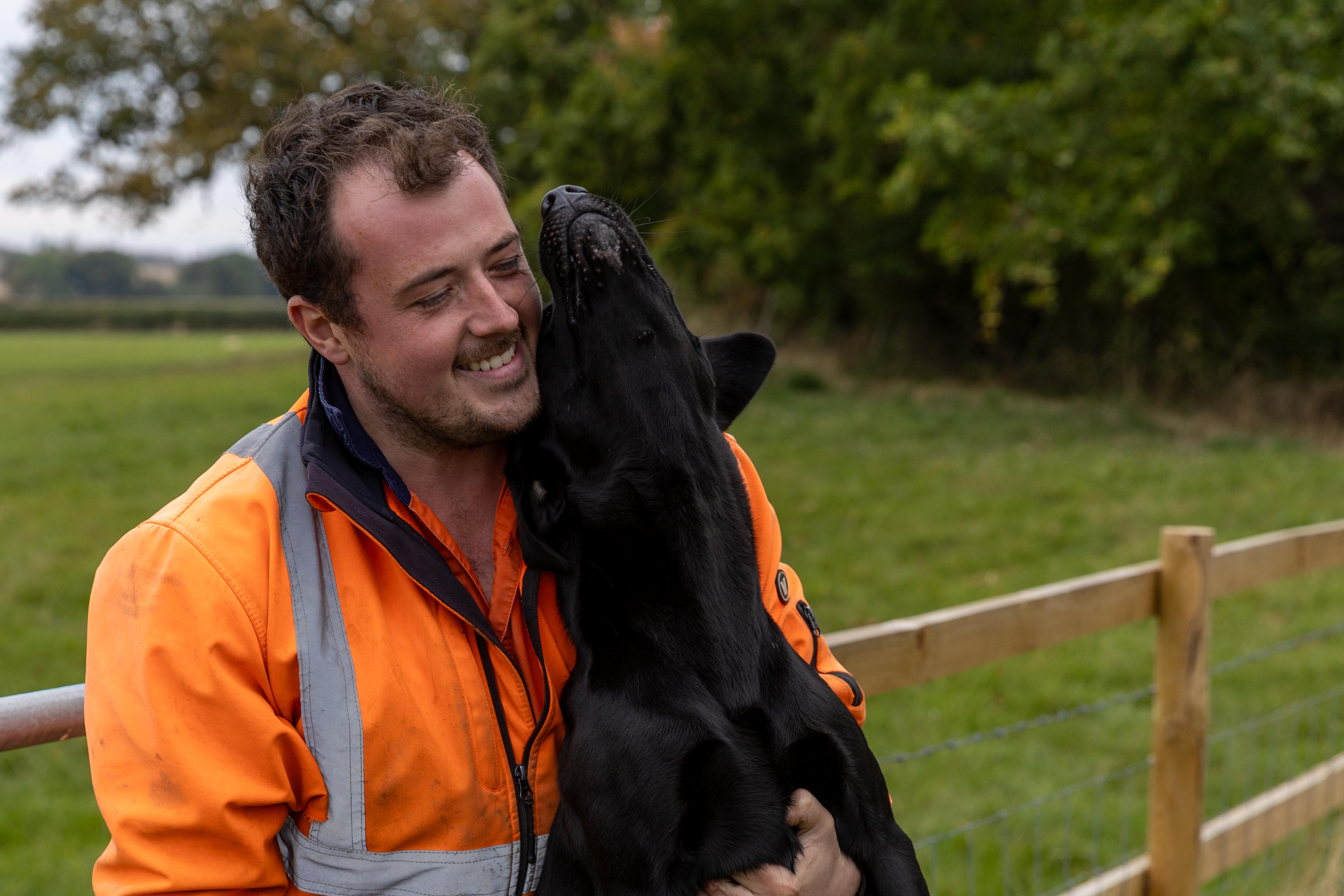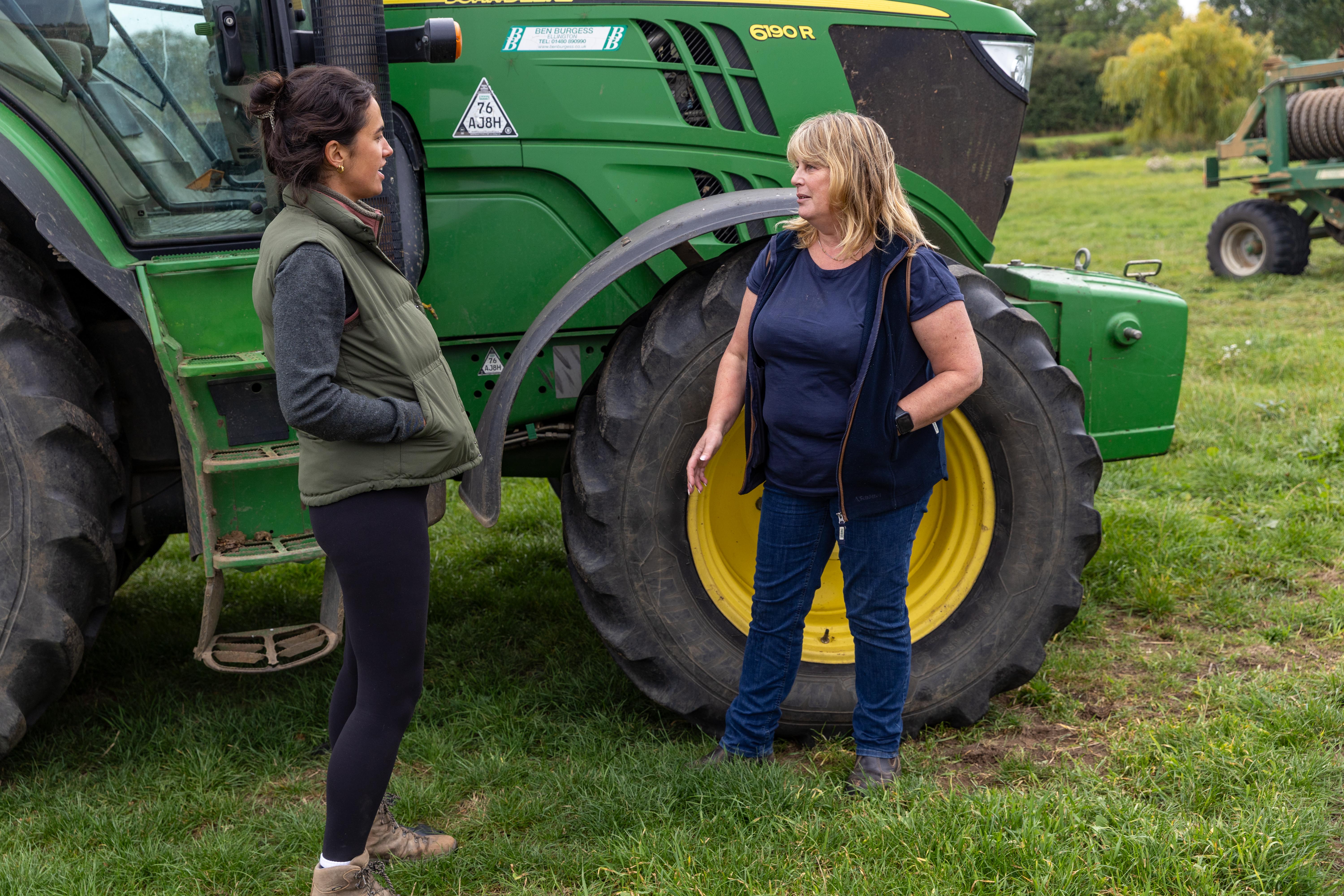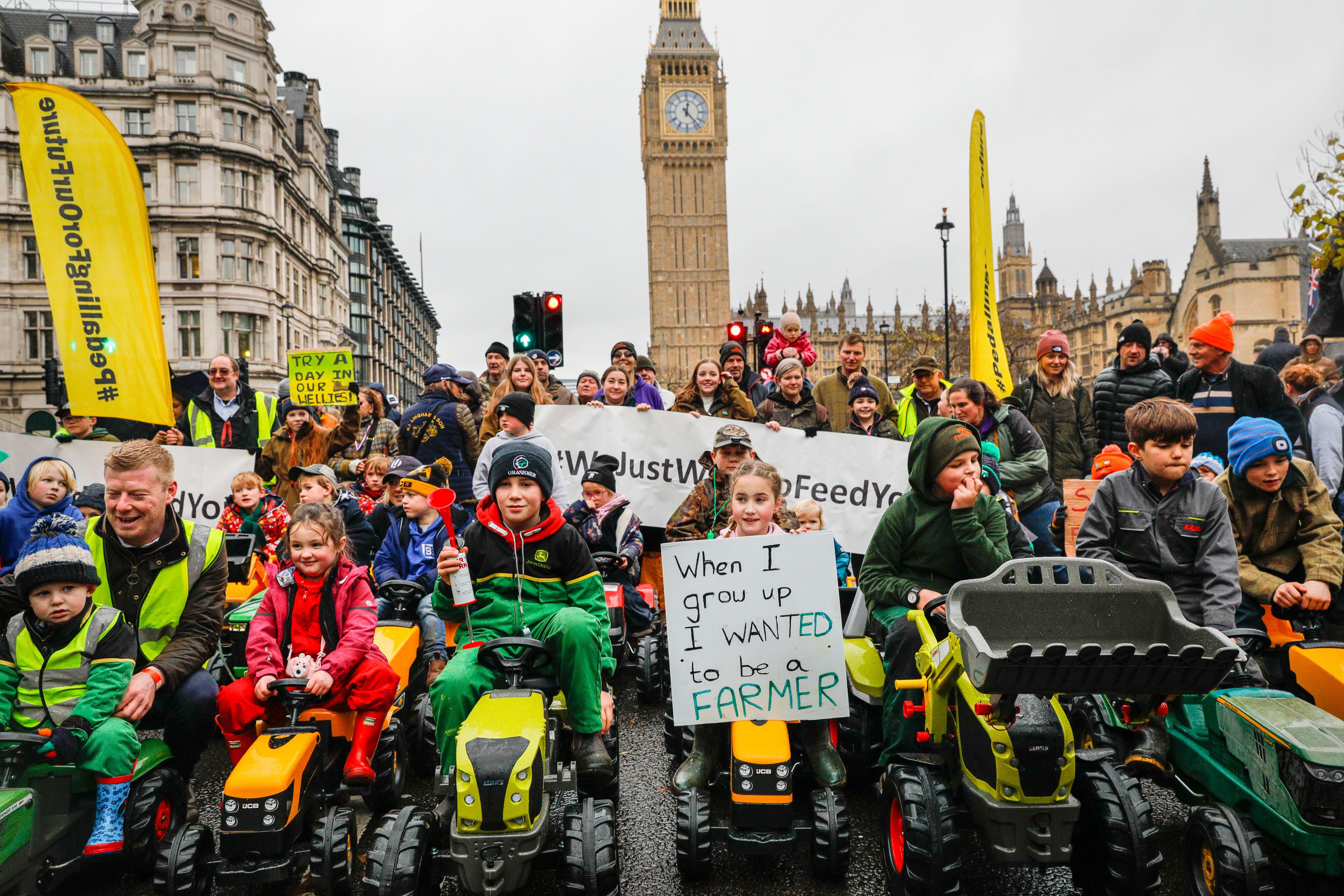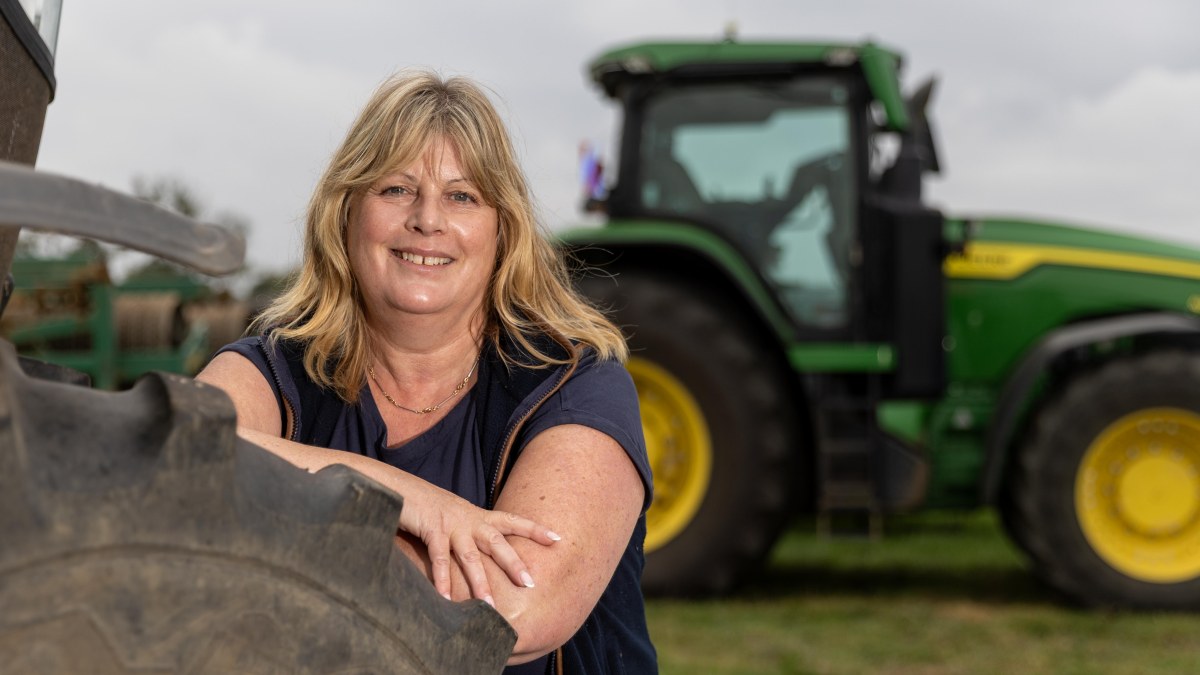Like her father before her, Freya Morgan has farmed since she was able to walk and has dedicated her life to preserving and expanding the family farm. Her hope is that her son, Josh, 28, who shares her passion, will inherit the arable farm in Bedfordshire as a viable business.
But farmers warn that they — and the country’s food supply — are under immense threat. A record number of farms have shut this year after the government refused to back down on its decision to cut inheritance tax relief for farming families and businesses.
“The nature of farming is that one year you can make a decent profit and for the next two you can make nothing,” said Freya, 61. “The industry is affected by three main things: the weather, global markets and political decisions.”
• I grew up with farmers. It’s not too late to rethink this destructive tax grab
It is politics that many families say will close their farms for good and leave the nation dangerously reliant on foreign food imports. At the moment most commercial farms are fully exempt from inheritance tax thanks to agricultural property relief and business property relief, which were introduced in the 1970s and 1980s.

Freya’s son Josh, who also works on the farm
TERRY HARRIS FOR THE SUNDAY TIMES
But from April the relief will be capped at £1 million for combined agricultural and business property per owner. Above this threshold farmers will pay an inheritance tax rate of 20 per cent, instead of the usual 40 per cent. Beneficiaries will have ten years to pay the bill before any interest is incurred.
The government says that stricter reliefs are an attempt to stop wealthy investors from using agricultural land to avoid paying tax and that small farms will not be affected by the changes. Farmers say this could not be further from rural reality.
What’s the problem?
Farms are typically asset-rich, cash-poor and rely heavily on debt to survive years in which bad harvests or poor prices wipe out any profit. Yet inflated land values mean that even modest farms will soon face six-figure inheritance tax bills they simply cannot afford to pay without carving up and selling their land.
The average net value of a farm was £2.4 million in the 2023-24 tax year, according to the Department for Environment, Food and Rural Affairs. From April this would mean inheritance tax at 20 per cent could be due on £1.4 million.
“We pay our taxes on any profits and VAT. But selling the land that we need to be able to work is like asking a mechanic to fix a car with no spanner,” Freya said. “We are already scratching our heads as to how we will survive from year to year.”
The reality of life on the farm
When I arrive at the family farm in Keysoe, I’m greeted by Freya and three excitable black labradors. It’s 8am and Josh is in the fields drilling winter wheat because Storm Amy is due to hit in two days’ time — plant seeds in soil that is too wet and you risk them rotting, but they need rain once in the ground to grow properly.
During harvest or when the pressure is on to beat the weather, a working day on the farm will start at 7am and can end at 11pm.
Today they manage to get ahead of the storm — a small win in what has been a tough year. “We are in the cycle of not making any money because of factors outside of our control, like the weather and worldwide markets,” Freya tells me over a cup of tea while Louis, her nine-year-old lab, sits on my foot.

Rachel Mortimer visits Freya on the farm in Keysoe, Bedfordshire
TERRY HARRIS FOR THE SUNDAY TIMES
In the past six years, the farm has had one year in which it made no profit at all, and one when it made a pre-tax profit of £just 10,000 — from which Freya and her son had to take some sort of income. They know already that they will make a loss in this financial year because wheat prices are low.
They need to sell a tonne of wheat for £200 to make a profit, £180 to break even — the price now is £160 a tonne. As we sit in the office, Freya gets an email with the latest grain market update. It isn’t good news. UK wheat prices are down again, thanks to bumper crops in the US.
• Inheritance tax shake-up threatens food security, say farmers
When prices are low farmers will hold on to their harvest for as long as they can in the hope that the market improves. “But there is only so long you can store it before you need the shed for the next harvest. Or you need the money to pay the bank or to pay bills and might be forced to sell it when prices are low,” Freya explained.
“A lot of farms are in a cashflow crisis and are forced to sell in unfavourable markets. We are price takers not price makers, the volatility is outside our control. At the moment we are borrowing to live and extending our overdraft.”
This is the reality of farming in the UK. Using the economy of scale is now the only way to balance the books — smaller farms are no longer viable. Successive governments have watered down and withdrawn subsidies that helped farmers to offset the cost of food production.
• Farmers struggling after ‘devastatingly dry’ growing season
Not only does this mean that many are now effectively paying to produce food, but few have any money to invest in their business — or to settle large inheritance tax bills. “The banks are also getting jittery,” Freya said. “They can see the huge financial strain the industry is under.”
British farmers cannot compete with foreign producers, who often still get financial support from their government, allowing them to sell for less and still turn a profit. This also helps to keep food costs down for their domestic market. Food prices have been a big driver of inflation in the UK this year.
Victoria Vyvyan, the president of the Country Land and Business Association, said: “The Treasury said these reforms would barely touch rural Britain. But they already have.
“Thousands of farmers are making hard choices about farms they have looked after for generations. Some are shelving investment and plans for the future. Others are wondering if they’ll even have a legacy to hand on at all.

Protests last November after the announcement of inheritance tax changes for farms in the October budget
ALAMY LIVE NEWS
“All of this while the weather grows wilder and vital funding schemes are vanishing just as they’re needed the most.”
Freya is a third-generation farmer. When her father broke away from her grandfather’s farm to set up his own, he had two pigs and rented land from a local landlord. After a lifetime of hard work the business now farms around 4,000 acres, of which the Morgans own 642 acres. The rest is rented or farmed and managed on behalf of smaller farmers.
Freya said: “They have gradually come to us because we have the equipment and economy of scale. They are just not viable on their own.”
• Why the inheritance tax raid on farmers should worry all of us
The inheritance threat
The advice given to farmers has always been to hold on to the family business until death, when it would be passed free of tax to the next generation. Freya’s parents did just that, but the rulebook is about to change dramatically.
Serious concerns have been raised about the welfare of older farmers who have run out of time to use the seven-year caveat (a golden rule of gifting which allows large sums to fall outside an estate for inheritance tax purposes if the person giving them away survives for seven years) to transfer a farm. Family farms can have complex set ups and there are many reasons why it may not be appropriate to transfer the business, not least because parents or grandparents still need an income from it.
“Our business model is very vulnerable to the tax changes,” Freya said. “There is still no detail as to how this is going to work in practice, so no one can make decisions as to how to protect their business and the changes are less than six months away.”
Nearly 6,400 agriculture, forestry and fishing businesses closed in the year to the end of June — highest figures since the Office for National Statistics began publishing such data in 2017. Most closures happened after Rachel Reeves, the chancellor, announced the inheritance tax changes in October.
As we walk through the fields, Freya gets a call from an older local farmer who has made the difficult decision to sell some of his land. He’s asking for help to find a potential buyer, the emotion thick in his voice as he admits he has no other choice. Freya is the Bedfordshire county chairwoman of the National Farmers’ Union and said his plight reflects the mood of the whole industry.
‘Now our insurance won’t cover the tax’
Anne-Marie and Robert Hamilton own one of the smaller arable farms that Freya and her son manage. Anne-Marie, 75, is a sixth-generation farmer and the couple have run the family farm since 1986. They have three children, including a son who is keen to take on the farm.

Freya Morgan with Robert and Anne-Marie Hamilton, who are worried their children won’t be able to afford to take on their farm
TERRY HARRIS FOR THE SUNDAY TIMES
The couple have had a life insurance policy for 40 years, but it won’t be enough to cover the inheritance tax bill. “Initially it would have well covered whatever was needed,” Anne-Marie said. “Our children would have been provided for and they could get on and farm, but that’s definitely gone now.”
They have had cash-flow problems and years of farming with no profits. “It’s a cruelty because people have worked so hard. The farm has gone through generations and you never really own the land, you are a custodian of it for the next generation. You just want to make sure you’ve left in a better condition that when you got it. But how can you do any of that at the moment?” Anne-Marie said.
“The end result is there will be less investment in farming and there’ll be less investment in Britain.”
The final straw
The government has given much weight to the fact farmers will have ten years to pay any inheritance tax bill without incurring interest. But many farms don’t have enough cash to pay, even in instalments.
Freya’s accountant tells me that her farm and business, which are held in her name, are worth nearly £5 million. If she were to die after April, her estate would qualify for the same £325,000 inheritance tax-free allowance that is available to everyone, and the extra £1 million tax-free allowance that will be available to farmers. She would not qualify for an additional £175,000 main residence allowance because her estate is worth more than £2.35 million.
Her heirs, therefore, face an inheritance tax bill of £706,000. They would have to sell about 90 acres, or 14 per cent of their land to raise that amount of money. Even if payments were spread over ten years, that would be £70,600 a year — an impossible sum to pay if the farm is barely breaking even.
• Is it time to set up a trust to beat inheritance tax?
Few viable farms are worth less than £1 million once land, the farmhouse, buildings, stores and machinery are valued. Many also have businesses such as shops, cafés and food brands because governments have encouraged them to diversify into other income streams.
The National Farmers’ Union estimates that 75 per cent of commercial family farms will exceed the £1 million threshold. The Agriculture and Horticulture Development Board, an industry-funded body that helps the sector puts the figure at 76.8 per cent.
The Treasury said: “Most estates claiming agricultural and business property reliefs will be unaffected by the changes. The money raised will go towards public services we all rely on. We’re also investing billions in sustainable food production, negotiating a veterinary agreement with the EU to slash costs for food producers exporting to the EU, and have appointed the former NFU president, Baroness Minette Batters, to advise on reforms to boost farmers’ profits.”
At the end of my visit I asked Freya where she thinks the farm will be in five years. “I struggle to see a future for it,” she said. “Farmers are passionate about the countryside and the food people eat. Everything I have done has been for the next generation, but why have I worked my socks off for it all to be taken away?”

